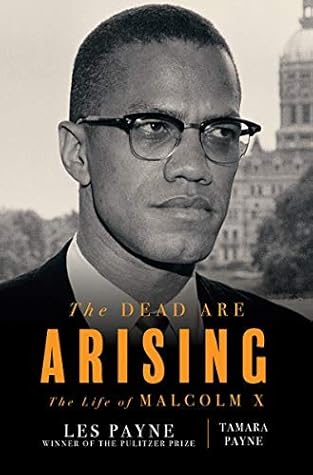More on this book
Community
Kindle Notes & Highlights
by
Les Payne
Read between
November 20, 2020 - June 1, 2021
According to newspaper accounts, some eleven hours past church services, the white rioters, still dressed in their Sunday fancy, proceeded to beat Will Brown bloody as he proclaimed his innocence. Shredding his clothes from his torso, they mercilessly whipped the near-naked Negro, who pleaded for his life as the mob cheered. The captive was then dragged to the higher of two lampposts on the south side of the smoldering courthouse, where several immigrant attackers slid the knotted noose around the neck of this American citizen vaguely accused. Then, without so much as a rhetorical question
...more
A brief history of the Klan is useful to put into perspective the hooded knights of the 1920s who were sworn to “keep blacks in their place.” The white-supremacist group was created immediately after the Civil War as an on-the-ground terror organization to help officialdom deny Negroes the fulfillment of promises made in the Thirteenth, Fourteenth, and Fifteenth Amendments to the Constitution, as well as those of the 1866 Civil Rights Act.
Garvey’s international group differed noticeably from its domestic rival, the strictly homegrown National Association for the Advancement of Colored People (NAACP). Both were nonviolently opposed to racial oppression, but the NAACP was at the time predominantly white. It had been founded in 1909 in New York City with some sixty charter members—only seven of whom were “colored.”
Although fulfilling the obligations of citizenship, Negroes were systematically denied the benefits. White supremacy was certified and enforced as national policy by the full force of the Supreme Court, Congress, and the executive branch of the federal government, although in wholly different ways.
In a postwar editorial in The Crisis, Du Bois, again like Frederick Douglass, urged Negroes to “close ranks” for full citizenship and to “marshal every ounce of our brain and brawn to fight a sterner, longer, more unbending battle against the forces of hell in our own land.” 6 Later in 1919, Du Bois more specifically wrote: “For three centuries we have suffered and cowered. No race ever gave passive submission to evil longer, more piteous trial. Today we raise the terrible weapon of self-defense. When the murderer comes, he shall no longer strike us in the back. When the armed lynchers gather,
...more
“We must canonize our own saints, create our own martyrs, and elevate to positions of fame and honor black men and women who have made their distinct contributions to our racial history,” Garvey insisted.
The global philosophy of the UNIA was summarized in Garvey’s “Declaration of Rights of the Negro Peoples of the World,” 14 which he placed alongside the Bible as a guide for those who “with confidence in ourselves” could “carve our way to liberty.”
With Garvey already indicted and pending trial, this government pursuit was willingly assisted by Negro leaders, including church pastors who complained loudly that Garvey preached race hatred. Competing directly with him for popular and financial support from the Negro masses, these officials felt increasingly threatened by the organizing genius of the upstart Jamaican immigrant who had acquired the sobriquet “Black Moses.”
Nonetheless, these competitors continued to provide endless streams of gossip, rumors, and, occasionally, hard evidence to federal authorities who were tracking the “man with a long bag.” Stepping up the attack, Du Bois branded Garvey “the most dangerous enemy of the Negro race in America and the world.” He and other prominent leaders reportedly went as far as to cooperate with the federal government, which was bent on getting Garvey deported back to Jamaica.41 Two NAACP officials sent a letter to the U.S. attorney general urging a speedy prosecution of the pending federal case against Garvey.
Decades later, it would be revealed that almost every Negro leader of consequence, some of them Garvey opponents, had been spied upon—and, in some cases, harassed openly by the federal government. When Du Bois emerged as a leading international voice advancing pan-Africanism, for example, he—not unlike Garvey—would be relentlessly pursued by Hoover, who built a nasty reputation for neutralizing effective black movements he considered radical. Later on, Du Bois also would be betrayed by Negro leaders and subjected to relentless government pressure for his avowed Marxist beliefs. Stripped of his
...more


